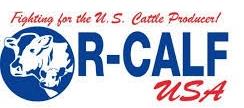 The Opportunities for Fairness in Farming Act introduced by Senators Mike Lee (R-UT), Elizabeth Warren (D-MA), Rand Paul (R-KY) and Cory Booker (D-NJ) is intended to limit the alleged improper action by administrators of checkoff programs with special reference to the beef industry. Over the past decade, there have been numerous legal actions and concerns relating to the various checkoff programs at the state and federal levels.
The Opportunities for Fairness in Farming Act introduced by Senators Mike Lee (R-UT), Elizabeth Warren (D-MA), Rand Paul (R-KY) and Cory Booker (D-NJ) is intended to limit the alleged improper action by administrators of checkoff programs with special reference to the beef industry. Over the past decade, there have been numerous legal actions and concerns relating to the various checkoff programs at the state and federal levels.
The Ranchers-Cattlemen Action Legal Fund-United Stock Growers of American (R-CALF USA) support the Bill. In contrast, the National Cattlemen’s Beef Association (NCBA) is opposed to the proposed legislation. This industry association claims that the bill was promoted by activists and dissident producers and that the existing checkoff program is supported by the majority of cattle farmers. This is evidenced by the 2021 vote strongly supporting the existing checkoff.
The Bill would regulate all federal checkoff programs and would include:-
- Prohibiting contracts with any organization that lobbies over agricultural policy.
- Establishing uniform standards for checkoff programs.
- Intensifying audits for compliance with relevant USDA oversight regulations.
- Promoting transparency with respect to expenditure of checkoff funds.

It is apparent that the proposed legislation arises from disagreements within the beef industry. In contrast there has been complete harmony within the egg industry with respect to checkoff funding, although a proposal to increase the rate was not approved over a decade ago. Given the recent review of the benefit to expenditure ratios by a Cornell University agricultural economist, the American Egg Board could consider a rise in the checkoff rate, especially given the present level of profitability in the industry.
To justify an increase, the AEB would have to demonstrate that their activities through promotion, outreach and research actually increase the per capita consumption of eggs. It is no longer adequate to claim that in the absence of promotional activities by the AEB that consumption would decline